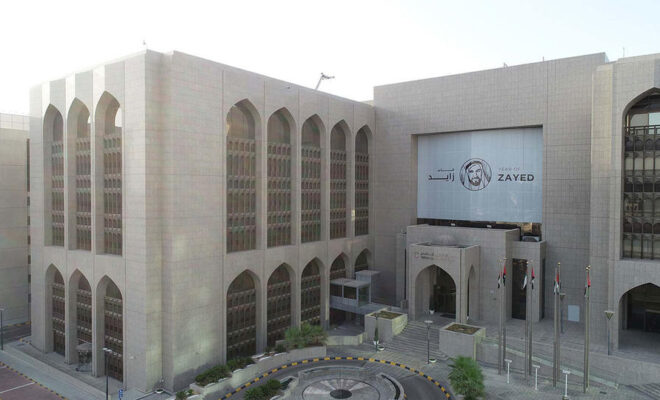Coronavirus Relief Options: Business Loan and Credit Guarantee Scheme

The pandemic had an adverse effect on the global economy, causing major disruption across different businesses with huge disparities in global production, supply chains and trade. To address these adverse times the government of India introduced numerous schemes to make sure that businesses and the economy spring back for the new normal. These schemes focus on business continuity and ease of carrying out business operations in the country by releasing notifications/amendments/circulars. So, let’s have a look at the measures initiated by the Central Government, Reserve Bank of India, Insurance Regulatory, Development Authority (IRDAI), Securities & Exchange Board of India (SEBI) and the sectoral ministries to boost businesses in India.
Credit Guarantee Scheme
The Credit Guarantee Scheme offers unsecured loans for MSME businesses. MSME can avail term loans or working capital loans under the scheme. These loans are collateral-free, which means MSMEs are not required to pledge any security or arrange for third party guarantee avail funds. If a business owner that has availed a loan under the Credit Guarantee Scheme, falls sick due to reasons beyond the control of the organisation, the lender also provides rehabilitation facility to such MSMEs. The Credit Guarantee Scheme with an additional amount of Rs.3 lakh crore by the Government is intended to help MSMEs that have an Rs.25 crore outstanding loan or less than Rs.100 crore turnover. This provision will rescue MSMEs that need financial assistance to meet operational liabilities and restart operations. The following are the salient features of the Credit Guarantee Scheme:
- Last date to avail Credit Guarantee Scheme is 31st October 2020
- 100% credit guarantee cover on principal and interest
- With a new 12 months’ moratorium on payment of principal amount
- Loan Tenor of up to 4 years
Fund of Funds
The Government has created a fund with a corpus of Rs.50,000 crores for MSMEs, the objective of this fund is to infuse equity to boost MSMEs growth. The Government is likely to contribute Rs.10,000 crores, while other institutions like SBI (State Bank Of India) and LIC (Life Insurance Corporation) are likely to fund the remaining amount. This government funding will be operated through a mother fund and a few daughter funds, and will also help MSMEs get listed on the main board of stock exchanges.
The scheme aims to encourage high rated MSMEs to explore public markets, instead of banks for their capital requirements. The Government will buy 15% of the amount raised as equity stake. Hence, it is advisable for small businesses to not just leverage bank funding, but also their own equity otherwise they will create huge stress on their own as well as a bank’s balance sheet. The fund aims to help MSMEs that are facing severe shortage of equity and boost their growth potential.
Subordinate debt for NPA/stressed MSMEs
The Government has made provision for Rs. 20,000 crores as subordinated debt to help MSMEs with stressed accounts or non-performing assets (NPA). Under this scheme, the promoters of the MSME will be given debt equal to 15% of his existing stake in the MSME unit, subject to a maximum of Rs.75 lakhs, which then the promoter will have to infuse as equity. This subordinate debt for NPA/stressed MSMEs will be provided by banks and would be counted as quasi-equity. The debt would be fully guaranteed through the Credit Guarantee Trust for the Medium and Small Entrepreneurs (CGTMSE).
Atmanirbhar Bharat Abhiyan
The Government of India has been quick to respond with measures to safeguard the MSME sector and announced the ‘Atmanirbhar Bharat’ scheme on 13 May 2020. As part of the Atmanirbhar Bharat Abhiyan, the MSME definition has been revised with an upwards revision in the investment limits as below.
Existing MSME Classification
Rs. 1 crore = USD 133,333
Criteria: Investment in Plant & Machinery or Equipment. Amount in Indian Rupees
| Classification | Micro Enterprises | Small Enterprises | Medium Enterprises |
| Manufacturing Enterprises | Investment< 25 lakhs | Investment< 5 crores | Investment< 10 crores |
| Services Enterprises | Investment< 10 lakhs | Investment< 2 crores | Investment < 5 crores |
Revised MSME Classification
| Micro | Investment < 1 crore and Turnover < 5 crores |
| Small | Investment < 10 crores and Turnover < 50 crores |
| Medium | Investment < 20 crores and Turnover < 100 crores (further revised to 250 crores) |
In the revised definition for MSME, the manufacturing and service MSMEs are combined to enjoy similar benefits with investment less than Rs 1 crore and turnover under Rs 5 crore. The manufacturing and service MSMEs will be defined as micro-units while SMEs will be categorized based on investment less than Rs 10 crore and turnover under Rs 50 crore. The definition for medium enterprises will be on the basis of investment under Rs 20 crore and turnover less than Rs 100 crore.
The above-mentioned government schemes and initiatives will ensure that MSMEs can further grow and expand without any disruption. For financial assistance, you can apply for a business loan for MSME. At Finserv MARKETS you can avail a business loan amount of up to Rs. 30 lakhs at attractive business loan interest rate, minimal documentation and quick approval on loans. The loan funds can be used for various business requirements.















Covid-19 UAE: 10-Day Quarantine Mandatory in Dubai for Close Contacts
Export Shipping Documents Checklist to complete your First Trade